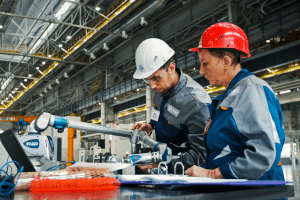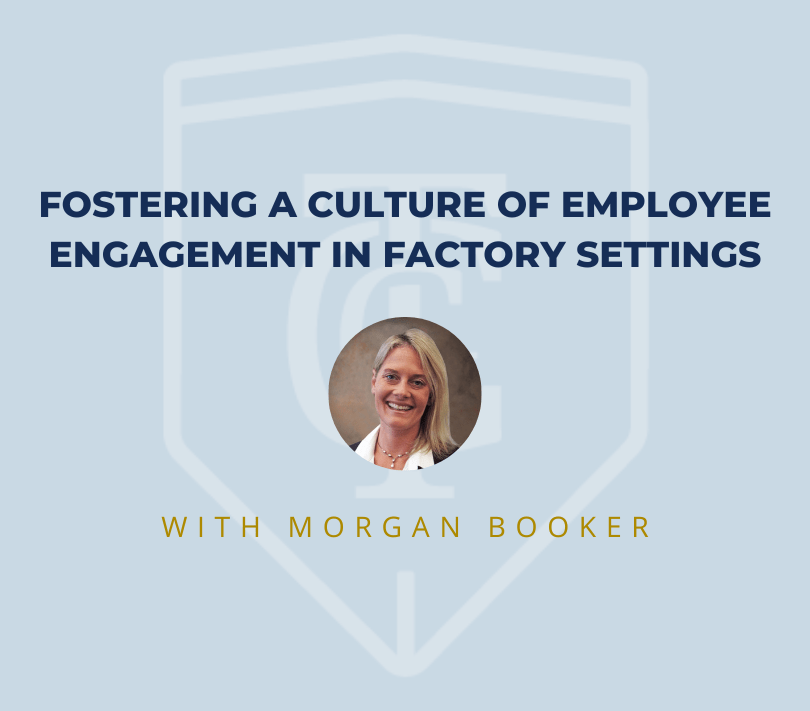
Employee engagement is a critical factor in the success of any organization, and factories are no exception. In the dynamic environment of manufacturing, where operational efficiency and teamwork are paramount, cultivating a culture of employee engagement is key to driving productivity and overall success.
The Foundation of Employee Engagement in Factories
- Creating a Positive Work Environment:
In factories, the work environment significantly influences employee engagement. A well-lit, organized, and safe workplace contributes to a positive atmosphere where employees feel valued. Engaged employees are more likely to take pride in their work and contribute proactively to achieving organizational goals.
A notable instance of employee engagement can be seen in the implementation of regular safety briefings. These sessions not only ensure the well-being of the workforce but also demonstrate the organization’s commitment to the employees’ health and safety, fostering a sense of engagement and care.
- Effective Communication Channels:
Communication is a cornerstone of employee engagement in factory settings. Establishing clear and transparent communication channels ensures that employees are well-informed about company updates, goals, and performance expectations. This transparency fosters trust and a sense of belonging among the workforce.
An example of effective communication fostering employee engagement is the implementation of regular team meetings. These gatherings provide a platform for open discussions, idea sharing, and problem-solving. Through such instances of employee engagement, employees feel heard, valued, and connected to the larger organizational mission.
- Recognition and Appreciation:
Recognizing and appreciating the contributions of factory employees is a powerful driver of engagement. Employees who feel their efforts are acknowledged are more likely to be motivated and committed to their work. Recognition can take various forms, from simple verbal appreciation to formal employee recognition programs.
A compelling illustration of employee engagement through recognition is the implementation of a “Employee of the Month” program. This initiative not only highlights outstanding contributions but also motivates other employees to strive for excellence. It creates a positive competitive spirit that benefits both individuals and the entire team.
Strategies for Sustainable Employee Engagement
- Investing in Employee Development:
Continuous learning and development opportunities are vital components of employee engagement. In a factory setting, providing employees with opportunities to enhance their skills not only improves job satisfaction but also contributes to the overall efficiency of operations.
An effective instance of employee engagement through development is the establishment of regular training programs. These programs not only enhance employees’ skills but also signal the organization’s commitment to their professional growth. This investment in the workforce contributes to a culture of continuous improvement and engagement.
- Empowering Employees Through Feedback:
Employee engagement thrives on a feedback-rich environment. Regular performance feedback and constructive criticism empower employees to excel in their roles. In factories, where teamwork is crucial, feedback mechanisms contribute to a culture of continuous improvement and collaboration.
An impactful instance of employee engagement through feedback is the implementation of regular performance reviews. These reviews provide employees with insights into their strengths and areas for improvement. Constructive feedback, when delivered effectively, not only aids individual growth but also strengthens the bond between employees and the organization.
- Encouraging Team Building and Social Interaction:
In factory settings, fostering a sense of camaraderie and teamwork is essential for employee engagement. Activities that encourage social interaction and team building contribute to a positive workplace culture. Engaged employees are more likely to collaborate effectively and support one another in achieving common goals.
An engaging instance of team building is the organization of regular team-building events. These events provide employees with an opportunity to connect on a personal level, breaking down barriers and promoting a sense of unity. This camaraderie positively impacts employee morale and engagement in their day-to-day tasks.
Employee engagement in factory settings is not a luxury but a necessity for sustained success. By prioritizing positive work environments, effective communication, recognition, and continuous development, organizations can create a culture where employees are not just workers but active contributors to the larger mission.
About Morgan Booker

Morgan has over 18 years of Talent Acquisition, Employee Relations, and Human Resource Business Partner experience. She joined The Christopher Group in 2022 as a Recruiting Manager and has since been promoted to Recruiting Director. Morgan’s focus is partnering with executive Human Resources candidates across the United States to fill Human Resources executive roles. To learn more about Morgan visit her bio page.

